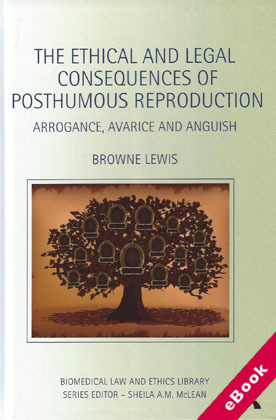
The device(s) you use to access the eBook content must be authorized with an Adobe ID before you download the product otherwise it will fail to register correctly.
For further information see https://www.wildy.com/ebook-formats
Once the order is confirmed an automated e-mail will be sent to you to allow you to download the eBook.
All eBooks are supplied firm sale and cannot be returned. If you believe there is a fault with your eBook then contact us on ebooks@wildy.com and we will help in resolving the issue. This does not affect your statutory rights.
Posthumous reproduction refers to the procedure that enables a child to be conceived using the gametes of a dead person.
Advances in reproductive technology mean it is now possible to assist in creating a life after you die and in recent years the number of women who have attempted to get pregnant using posthumous reproduction has increased. However, the law in many jurisdictions has not put regulations in place to deal with the ethical and legal consequences that arise as a result of posthumous reproduction.
This is first book to exclusively focus on posthumous reproduction. The book comprehensively explores the legal and ethical issues surrounding posthumous reproduction in a number of jurisdictions including the US, Israel, the UK and France.
The book looks at a number of issues including: ascertaining the wishes of the dead and protecting the reproductive rights of men where they have deposited frozen sperm in clinics prior to their deaths; cases involving people who want to acquire fresh sperm from deceased men and who has the right to accept the sperm; identifying the parents of the posthumously conceived child; and the need to promote the best interests of the child.
The book critically examines the current laws that are in place and proposes additional regulations and policies in order to effectively regulate posthumous reproduction.